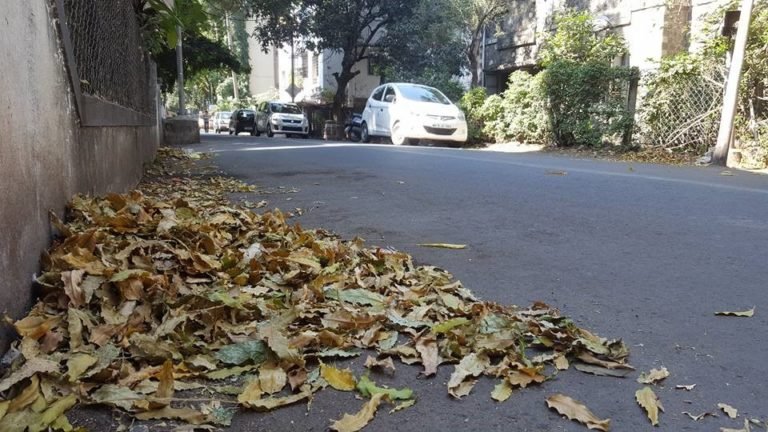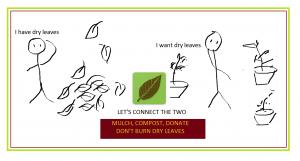Why there is “waste” where humans live and how we can eliminate it
Earth is much older than us. Any river in India is a few lac years old, if not crore. They have been here even before humans walked this earth.
For most part of our existence on earth, humans were hunter-gatherers. Our ancestors, in those times, did not reside at one place. They had nomadic lifestyle.
They used to collect fruits, tubers and used to hunt animals. When food supply from one place exhausted, they used to move to some other place.
Through their observations, they might have realized that seeds thrown away in the soil, germinate, and new plant grows out of them. That was the beginning of agriculture.
They no longer needed to depend on the surroundings for food, they could produce it themselves. That also ended the nomadic lifestyle. Farming required residing at one place, work on the land, look after crops.
River bank was the obvious choice. River provided water for drinking and other utilities. Rivers when flood, deposit silt carried by them, on the banks. River banks offered fertile soils for agriculture.
Thus, settlements began on river banks. Eventually villages, towns and cities were established, and civilizations happened. Mesopotamian, Egyptian, Indus civilizations, are examples of some of the prominent river civilizations.
Why are we discussing history of civilization?
To stress the point that humans have resided for a long time on the very places we reside today. They used same river, they used same soils. And yet, something changed in say, last 40-50 years.
Today, our rivers are polluted, soils are contaminated with various toxic chemicals. Our cities are drowned in the waste created by us. We are dumping our waste in surrounding areas. Chief Minister of Maharashtra, Mr. Devendra Phadanvis recently declared that Maharashtra has run out of space for dump yards. Condition is not much different in other states.

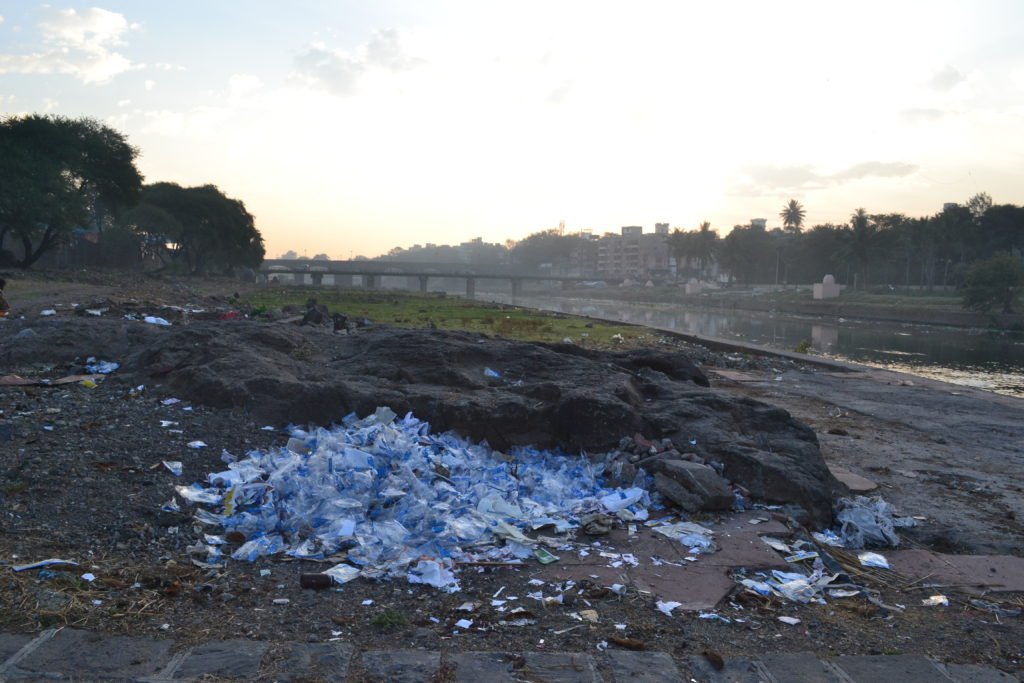
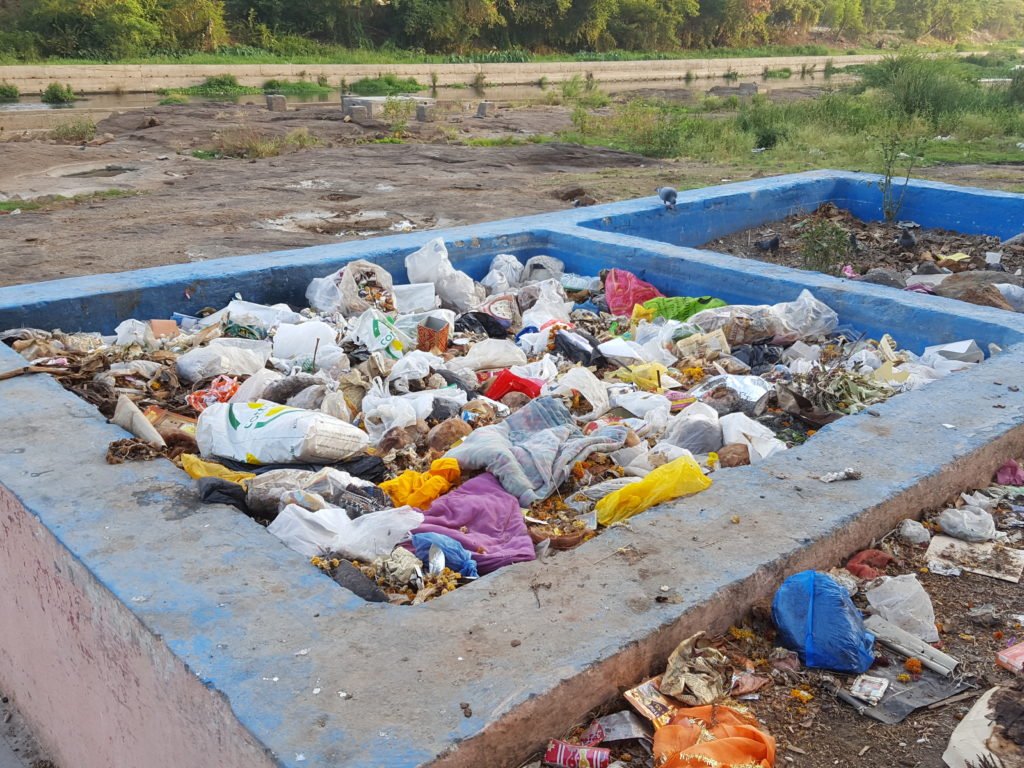
Purpose of peeping into history of humanity is to explore the question, “Why now”? What exactly we started doing differently that humanity is facing the challenge of “waste management”?
Yes, population is a challenge. There are more people on earth today than ever.
Yet, that is not the cause, at least not the only cause.
These 2 factors made all the difference
- Introduction of non-biodegradables
- Linear system of production
Mainly after world war II, a lot of research happened to increase productivity world-wide. During this period, a lot of human-made chemicals, substances were prepared, as cheap and easily-manufactured alternatives to natural products. And yes, more convenient in many cases.
They made our life easy no doubt. However, nature does not know how to process these non-natural products.
Decomposition in nature is carried out with a variety of insects and microbes. The ones that are processed and broken down into simpler forms, in nature are known as bio-degradable. Majority of human-made substances are non-biodegradable.
Bio-degradable substances eventually decompose and are returned to the soil. These newly introduced substances i.e. the non-bio-degradable would remain as it is in nature for a long time. (chart of how much time it requires to degrade human made substances)
Precisely these are the substances that ultimately constitute “the waste”.
So, yes, creation of substances by altering chemical composition of the natural substances introduced waste.
But that is not the only problem. Challenge also lies in our approach. In the quest for easy, comfortable life, we forgot the basic principle in nature.
The soil to soil approach, the cyclicity in nature. Everything comes from the soil and everything goes back to the soil.
Processes in nature are cyclic. Output of one system serves as input to some other system. Resources are used and reused. And since it is circular, there is no end to it. They are inherently sustainable.
What about our current system?
It is linear. Creation -> Usage -> Disposal.
As you can see, there is end to the linear system, unlike circular one. And “waste” is that end.
Humans too followed the circular system till recently. Introduction of human-made, non-bio-degradable substances changed this to some extent. But mainly our design changed from “cradle to cradle” to “cradle to grave”.
Dry leaves that fall of the trees became waste. Solution? Burn them off
Vegetable peels, residues became waste. Solution? Throw it away
For natural, bio-degradable, we forgot that they decompose and should go back to the soil.
Why not create a system to send vegetable leftovers to the field, to replenish the nutrients that soil has lost?
Why not let some leaves lie as it is near the tree, let them naturally decompose and nutrients return to the soil?
Why not collect dried flowers offered to the God, compost them and make beautiful flower garden so that you never run out of fresh flowers for God and keep nourishing the soil in the garden?
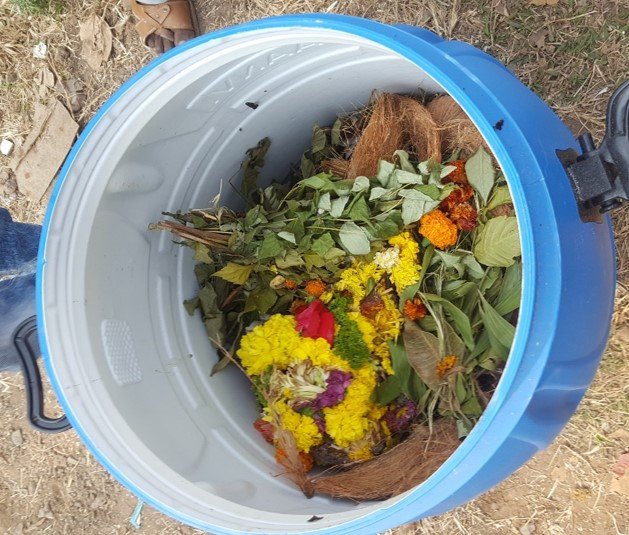
How about developing a kitchen garden for school canteen? Let the canteen left-overs go back to soil to produce vegetables, that would be cooked in the canteen? Children eat healthy meals, soil is nourished and there is no waste.
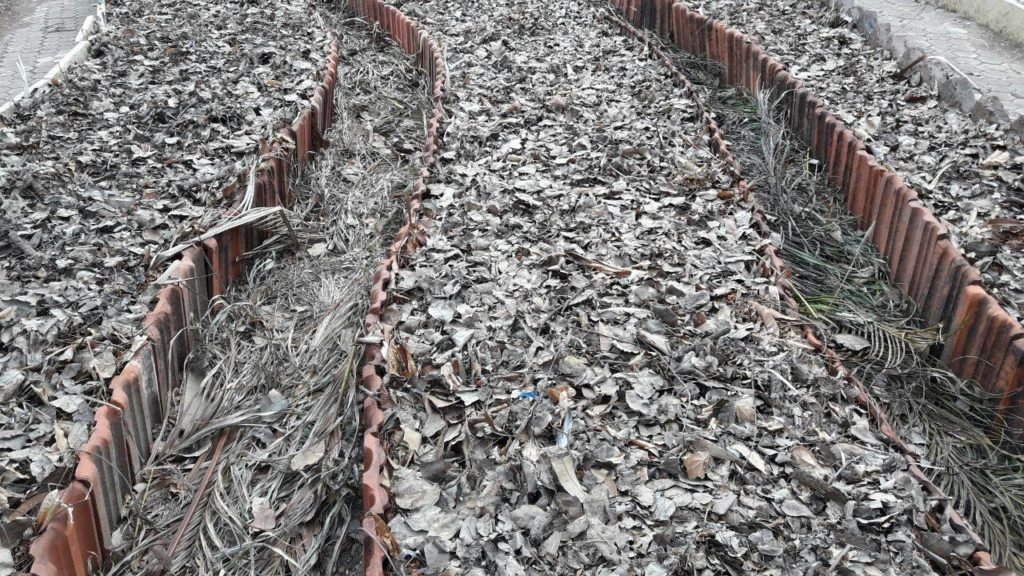
School Kitchen Garden (A detailed blog will follow about this model)

For non-biodegradable, instead of designing them in such a way that they can be safely reused, we design them for dump.
When plastic is burnt, it gives out dioxins which are very harmful for environment and us. Why not design material that, after use, can be safely burnt as fuel? People can make use of it to cook food, heat water for a warm bath?
Why not design cyclic systems?

Cyclic System: Output of one serves as input to other
We can design some systems right away, on household level, society-level, community-level.
Why not start with us? And go on making changes at higher level?
Let’s start with a “waste” today and convert it as input to some other system?
If you are confused, just put the item in your wishlist in the comment below and we, the whole community will help you



